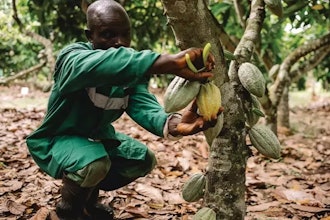BILLINGS, Mont. (AP) — A legal clash over water rights on the arid Northern Plains is bound for trial as attorneys for Montana press their case that Wyoming farmers and oil and gas companies are sucking too much water from tributaries of the Yellowstone River.
Montana sued its southern neighbor before the U.S. Supreme Court in 2007. It claims Wyoming is violating a 1950 agreement by depleting the Tongue and Powder rivers before they flow north into Montana.
More than six years later, the civil trial set to start Wednesday in a federal courtroom in Billings will determine if Wyoming should be held liable.
While water losses for all years have not been quantified, attorneys for Montana claim the state was unfairly denied 10,160 acre feet of water during several years of drought in the past decade. That's equivalent to more than 3.3 billion gallons of water.
"It's no small matter to the farmer who's trying to make a living, or a rancher who's trying to run cattle and from one month to the next doesn't know if she or he is going to have the resources necessary," Montana Attorney General Tim Fox said in an interview.
Wyoming wants any claims of liability limited to a handful of years in which Montana issued formal notice that it needed more water. Even in those years, attorneys for Wyoming dispute Montana's claims and say the amount of water at stake is "remarkably small."
"There is not a single viable claim in this litigation that some action in Wyoming caused harm to a particular farmer in Montana," James Kaste, Wyoming senior assistant attorney general, wrote in a motion to dismiss the case.
Fox responded that Wyoming's attempts to minimize the consequences of the case ignore the fundamental role that water plays in a region heavily dependent on agriculture and prone to drought.
The case is being overseen by a special master appointed by the Supreme Court. The two sides have introduced hundreds of documents as exhibits and could call dozens of witnesses in the trial scheduled to last several weeks.
Two years ago, the Supreme Court rejected one of Montana's arguments in the case — that Wyoming farmers have taken advantage of irrigation improvements to take more than they were allowed under the 1950 agreement between the states.
Still pending before the court are several key issues, including whether natural gas drilling in Wyoming is depleting underground aquifers that feed into the Tongue and Powder rivers basins.
Montana contends that tens of thousands of gas wells in Wyoming withdrew 290 billion gallons of groundwater from the basins between 1999 and 2012. The water was removed to extract a type of gas known as coal-bed methane from underground coal seams that also act as aquifers.
One of the energy industry's major players in the region, Anadarko Petroleum Corp. has filed court briefs in support of Wyoming's contention that coal-bed methane drilling should be excluded from the case.
The Texas-based company said the link between pumping groundwater and depleted rivers and streams is speculative. And because neither state regulates pumped groundwater as a type of tributary for rivers and streams on the surface, Anadarko's attorneys said Montana cannot use the language of the 1950 Yellowstone River Compact to do so.
Yet the special master in the case, Stanford Law School Professor Barton Thompson, signaled in a ruling last month that he will at least give Montana the chance to make its argument.
Thompson rejected Wyoming's attempt to dismiss Montana's claims on coal-bed methane (CBM) and said there was "no basis for carving a flat exemption for CBM groundwater" from the compact.
"The Supreme Court is the ultimate arbiter of the connection between CBM groundwater production and surface flows," he wrote.
North Dakota is also listed as a defendant in the case because it is a party to the Yellowstone compact. However, no claims have been made against it and the outcome of the lawsuit is likely to have little bearing on the state.






















